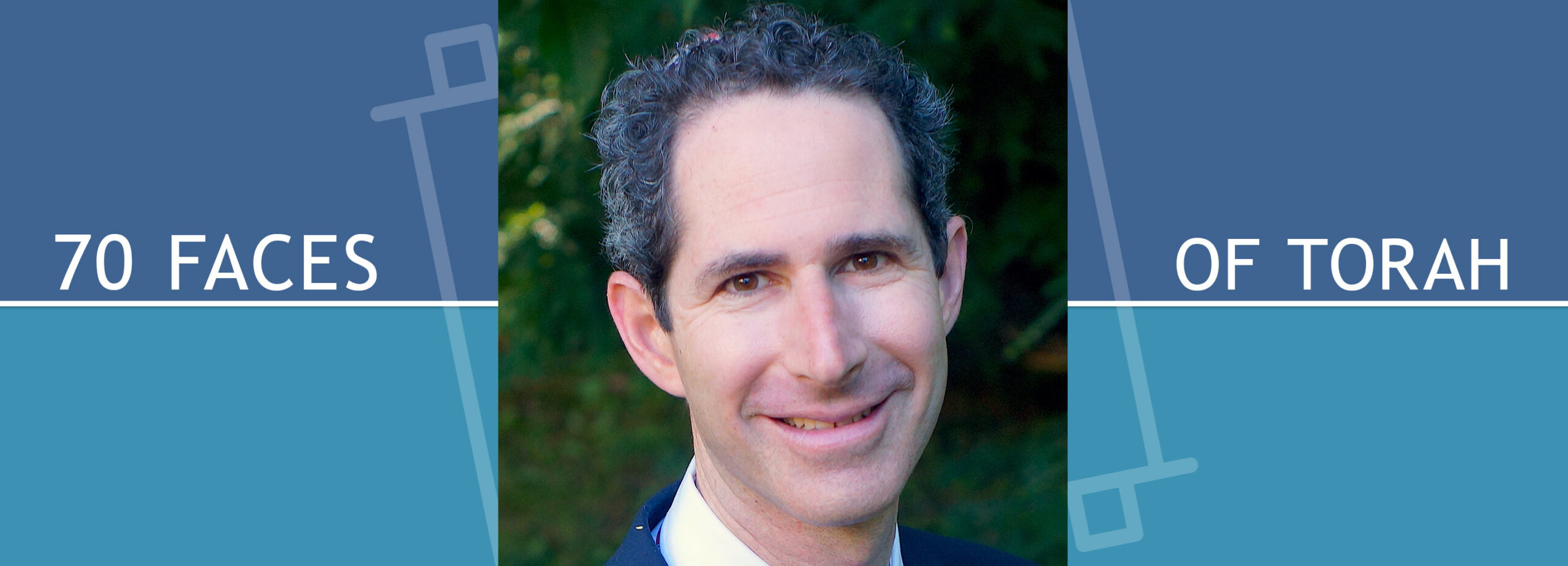Community Blog Other People’s Old People, and Other People’s Kids

Parashat Bo (Exodus 10:1-13:16)
Years ago, I brought a teen klezmer band on tour to Eastern Europe. Our eighteen-person entourage included a dozen musicians, several parent chaperones, a grandmother returning to her hometown for the first time since the war, and a small film crew. We divided into pairs for rooming, with the occasional need to switch to three per room. On the evening when we were first preparing to switch to our groups-of-three formation, one of the mothers petitioned to room with her daughter and son. This would have necessitated a reshuffling of other groups, which among other issues, would have required one teenage girl to room with another musician’s mother and grandmother. When presented with this scenario, she responded, “No offense, but I don’t want to room with other people’s old people!”
I wanted to connect this distinctive phrasing to our Torah portion with a positive spin on what “other people’s old people” or “young people” might mean, and I’ll note that while this story might express some boundaries one might wish to have, and distinctions between one’s own family and other people’s, the trip overall was one in which the presence of multiple generations was an important part of a formative experience, for the quoted teenager and for the rest of us.
Young people and old people¹ figure prominently in Moses’s negotiations with Pharaoh at the outset of the portion. After the seventh plague, Pharaoh gives the Israelites permission to leave, and then belatedly asks who Moses is intending to bring. According to the commentators, Pharaoh imagines that just the religious and political leadership will travel to offer sacrifices in the desert, leaving behind those most vulnerable, as a guarantee that all will return. Moses answers (Exodus 10:9), “With our young people and our old people we will go, with our sons and our daughters, with our sheep and cattle we will go, for it is a festival of God for [all of] us.”
What a beautiful reminder of the importance of a multi-generational community. Many commentators echo how crucial the presence of children is. Rabbi Naftali Tzvi Yehuda Berlin (1816-1893) says, “It’s impossible to have a celebration without children.” Rabbi Yosef Cahaneman² of Ponovezh (1886-1969) says, “A child without parents is an orphan, but a nation without children is an orphan people.” Or as Rabbi Moshe Teitelbaum (1759-1841) says, It is because of the merit of young children that God’s presence, the shechina, rests among Israel.”
My congregation is blessed to have daveners (worshippers) on Shabbat and holidays ranging from babies and toddlers to nonagenarians. As we continue to move toward pre-COVID levels of gathering, we’re re-encountering issues of how to share space with people with a variety of needs. We’re doing so in several ways—by having more programming and more spaces available for families with young kids, both in and out of the sanctuary, and by reminding our congregation of the blessings of having a multigenerational community.
Rabbi Jonathan Sacks (z’l) taught that there’s a crucial distinction between the bond that we have with our own children, or our own parents, and those we form with others. But part of the beauty of living in community is the process of adopting “other people’s old people” and “other people’s children” as people to form special relationships with. Our congregation has been sharing stories about a beloved community member, Omi Cantor, who just passed away: how she would adopt and interact with the young people in the congregation, filling the role of surrogate grandparent and parent. She often invited families who needed a place to go to join her for seder. She filled refrigerators when people were returning from an out-of-town shiva. She brought meals and beautiful knitting to celebrate new babies in the community. And she once asked a mother in shul what her son’s favorite kind of cake was, and proceeded to bake him this cake, just because he was the middle child, and she thought he deserved something special.
We can learn from the argument between Pharaoh and Moses at the beginning of our portion, that the Pharaohs of the world want to divide people based on gender, age, and role in society. It’s our job to do the best we can to follow the refreshingly modern response of Moses, that we need people of all ages, all genders, and all roles, in order to create community. As Yaakov Tzvi Mecklenburg, a German rabbi of the 19th century said, “What kind of simcha—what kind of joyous occasion—would it be for those who go [off to worship in the desert], if they leave behind their old people and their young ones in Egypt, on God’s festival?”
We may not necessarily wish to room with “other people’s old people,” and unless it’s our job, we should generally avoid telling “other people’s children” what to do. But may we all be blessed to form bonds and friendships with people of multiple generations, so that we can help each other, learn from each other, celebrate together, and accompany each other out of Egypt.
- Feel free to use Bernard Baruch’s definition of old age: “To me, old age is always 15 years older than I am!”
- Rabbi Cahaneman was a head of a yeshiva in Lithuania, who lost many of his students during the Shoah and worked during and after the war to set up orphanages for refugee children in Israel.
Please email the author to provide feedback.
Ken Richmond is the co-senior Rabbi of Temple Israel of Natick and has been serving as Cantor there since 2006. He received s’micha from Hebrew College’s Rabbinical School in 2021. He enjoys playing klezmer music, speaking Yiddish, and hiking.

